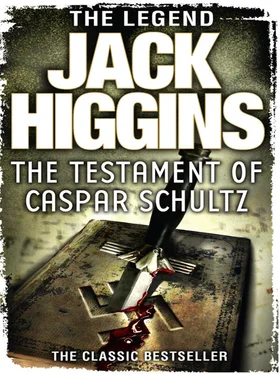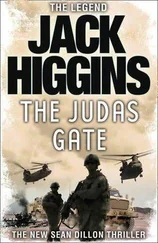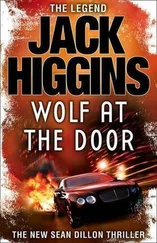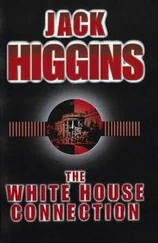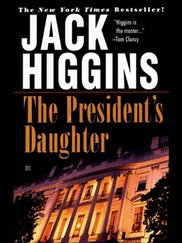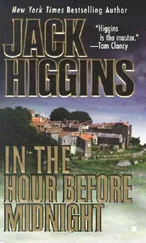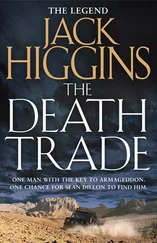There was a discreet tap on the door and the attendant entered, a tray balanced on one hand. “Coffee, mein Herr?”
Chavasse nodded. “Yes, I think I will.” The man quickly filled a cup and handed it to him. Chavasse helped himself to sugar and said, “Are we on time?”
The attendant shook his head. “About five minutes late. Can I get you anything else?” Chavasse said no, the man bade him goodnight and went out, closing the door behind him.
The coffee wasn’t as hot as it could have been and Chavasse drained the cup quickly and sat on the edge of his bunk. It was warm in the compartment, too warm, and his throat had gone curiously dry. Beads of perspiration oozed from his forehead and trickled down into his eyes. He tried to get up, but his limbs seemed to be nailed to the bunk. Something was wrong—something was very wrong, but then the light bulb seemed to explode into a thousand fragments that whirled around the room in a glowing nebula, and as he fell back across the bunk, darkness flooded over him.
After a while the light seemed to come back again, to rush to meet him from the vortex of the darkness and then it became the light bulb swaying rhythmically from side to side. He blinked his eyes several times and it became stationary.
He was lying on his back on the floor of the compartment and he frowned and tried to remember what had happened, but his head ached and his brain refused to function. What am I doing here, he thought? What the hell am I doing here? He reached for the edge of the bunk and pulled himself up into a sitting position.
A man was sitting on the floor in the far corner of the room by the washbasin. Chavasse closed his eyes and breathed deeply. When he opened them again, the man was still there. There was only one thing wrong. His eyes were fixed and staring into eternity. Where his jacket had fallen open, a ragged, smoke-blackened hole was visible on the left-hand side of the white shirt. He had been shot through the heart at close quarters.
Chavasse got to his feet and stood looking down at the body, his mind working sluggishly and then something seemed to surge up from his stomach and he leaned over the basin quickly and vomited. He poured water into a glass and drank it slowly and after a moment or two he felt better.
There was a bruise on his right cheek and a streak of blood where the skin had been torn. He examined it in the mirror with a frown and then glanced at his watch. It was twelve-fifteen. That meant the train had already passed through Osnabruck and was speeding through the night towards Bremen.
Even before he examined the body, Chavasse knew in his heart what he was going to find. The man was small and dark with thinning hair and his cheeks were cold and waxlike to the touch. The fingers of his right hand were curved like hooks reaching out towards a wad of banknotes which lay scattered under the washbasin.
It was in the inside pocket that Chavasse found what he was looking for. There was a membership card for a club on the Reeperbahn in Hamburg in the name of Hans Muller, a faded snapshot of him in Luftwaffe uniform with his arm round a girl and several letters from someone called Lilli addressed to a hotel in Gluckstrasse, Hamburg.
Chavasse got slowly to his feet, his mind working rapidly. As he turned away from the body, his eyes fell upon the Mauser automatic pistol lying in the corner. As he bent to pick it up, there was a thunderous knocking on the door and it was flung open.
Inspector Steiner was standing there, the attendant peering anxiously over his shoulder. “Herr Chavasse?” Steiner said politely. “I regret to trouble you, but the attendant reports hearing a shot from this compartment. Have you any explanation?”
At the same moment he saw the Mauser lying on the floor and picked it up. The attendant gasped in horror and Sterner pushed Chavasse back into the compartment and followed him in.
Chavasse sat on the edge of the bunk and Steiner examined the body quickly. After a moment he called the attendant in. “What is your name?” he said.
“Schmidt, Herr Steiner,” the attendant said. “Otto Schmidt.” His face had turned a sickly yellow colour and he looked as if he might vomit at any moment.
“Pull yourself together, man,” Steiner snapped. “Have you ever seen this man before?”
Schmidt nodded. “He boarded the train at Osnabruck, Herr Steiner.”
“And then?” Steiner asked.
Schmidt glanced furtively at Chavasse. “I saw him enter this compartment.”
Steiner nodded. “I see. Ask Dr Kruger to step in here.”
Schmidt went out into the corridor and Steiner turned and held out his hand. Chavasse realized that he was still holding the things he had taken from Muller’s pocket and handed them over. Steiner examined the letters quickly and grunted. “This man, Hans Muller, who was he? Why did you kill him?”
Chavasse shrugged. “You tell me.”
Steiner bent down and picked up the wad of banknotes from beneath the washbasin. He held them up in one hand. “I don’t think we have to look very far, my friend, unless you are going to try to tell me this money is yours?”
Chavasse shook his head, “No, it isn’t mine.”
Steiner nodded in satisfaction. “Good, then we are getting somewhere. There was a quarrel, perhaps over this money. He struck you. There is the mark of the blow on your cheek and a cut caused by the rather ornate ring worn on the middle finger of his right hand.”
“And then I shot him?” Chavasse said helpfully.
Steiner shrugged. “You must admit it looks that way.”
At that moment Kruger came into the compartment. He glanced enquiringly at Steiner who nodded towards the body. Kruger frowned and dropped down on to one knee. After a brief examination he stood up. “A clean shot through the heart. Death must have been instantaneous.”
Steiner put the money into one of his pockets and became suddenly businesslike. “Have you anything further to tell me before I take you into custody, Herr Chavasse?”
Chavasse shook his head. “No, I don’t think so. There’s just one thing I’d like to ask Schmidt, if I may.” He turned to the attendant before Steiner could reply. “Tell me, Schmidt. Is there an American army sergeant travelling on the train?”
Schmidt looked genuinely bewildered. “An American army sergeant, mein Herr? No, you must be mistaken.”
Chavasse smiled gently. “Somehow I thought I was.” He got to his feet and turned to Steiner. “Well, where do we go, Inspector?”
Steiner looked enquiringly at Schmidt. “Have you an empty compartment?”
“Yes, Herr Steiner,” Schmidt said. “In one of the other coaches.”
Kruger, who had been listening in silence, stood to one side and Steiner pushed Chavasse into the corridor. The noise of the voices had brought several people to the doors of their compartments and as Chavasse followed Schmidt along the corridor, people stared curiously at him.
Sir George Harvey was standing outside his compartment, a bewildered expression on his face. As they approached he seemed about to raise a hand, but Chavasse frowned and shook his head slightly. Sir George stepped back into his compartment and closed the door.
Chavasse had decided a good ten minutes earlier that there was little point in sitting in a Hamburg gaol for six months while the lawyers argued over his ultimate fate. As they passed through the second coach a plan had already started to form in his mind.
The empty compartment was at the far end of the third coach and by the time they reached it he was ready. Schmidt bent down to unlock the door and Chavasse waited, Steiner close behind him. As the door started to open Chavasse pushed his hand into Schmidt’s back, sending him staggering into the compartment. At the same moment he whirled on the ball of one foot and rammed the stiffened fingers of his left hand into Steiner’s throat.
Читать дальше
